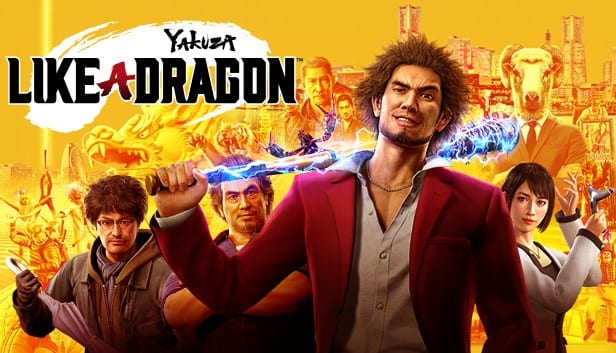SEGA and Ryu Ga Gotoku Studio’s reboot of the widely popular Yakuza franchise is finally out on Xbox Series X, Xbox One, PlayStation 4, and PC. Yakuza: Like a Dragon is a major departure from the mainline series we’ve known for almost two decades, but it stands on its own as a quirky, yet original epic. This is our review of Yakuza: Like a Dragon.
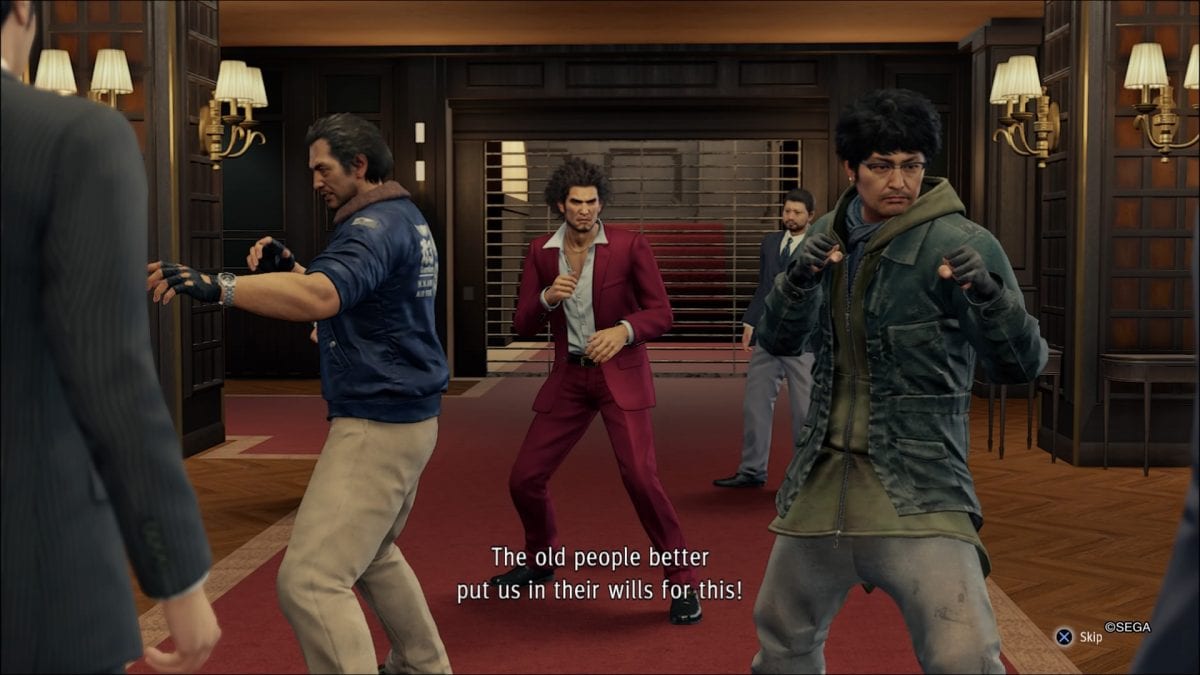
A Quirky Origin of the Next Great Yakuza Hero
Over the last 15+ years, SEGA and Ryu Ga Gotoku Studio have been telling the story of Kazuma Kiryu and his life as a member of the Tojo Clan, one of the biggest Yakuza families in all of Japan. His arc comprised seven Yakuza titles, which also produced a few spin-off games. When his story seemingly ended at the end of Yakuza 6, many wondered if that was the end of the mainline franchise.
Thankfully, that would not be the case, as the publisher and studio announced that they would be moving the focus of the series off of Kiryu and onto a fresh cast of characters with Yakuza: Like a Dragon, most notably banished ex-Yakuza member Ichiban Kasuga.
The story of Yakuza: Like a Dragon, starts off on New Years Eve in the year 2000. At this point in time, Kasuga is a lowly grunt within the little-regarded Arakawa family, a small member of the Tojo Clan. Indebted to his patriarch, Kasuga works hard and does everything he can to bring honor to his family. His devotion is tested when he is asked to take the fall for the murder of a major Yakuza member who is part of a family ranked higher than the Arakawa family. Eager to prove himself, Kasuga accepts and finds himself banished from the Arakawa family and imprisoned for roughly 18 years.
Expecting a hero’s welcome upon his release, Kasuga is greeted instead by the harsh reality that the world he knew 18 years ago is gone and sometimes you can’t go back home. After a bloody reunion with his former family, Kasuga is dumped in the downtrodden city of Yokohama. With a new group of friends to call family and a city in need to call home, Kasuga presses the reboot button on his life to make the most of his situation in his new home.
The Yakuza series is regarded by many (including myself) as one of the greatest video game franchises of all time. The way it told the story of Kiryu and his associates and even his enemies was storytelling at its finest, almost like it belongs on HBO. With a new character becoming the face of the franchise, I didn’t think Like a Dragon could live up to the majesty that was the original Yakuza series. Yet, somehow through all its crazy, quirkiness it does just that and more.
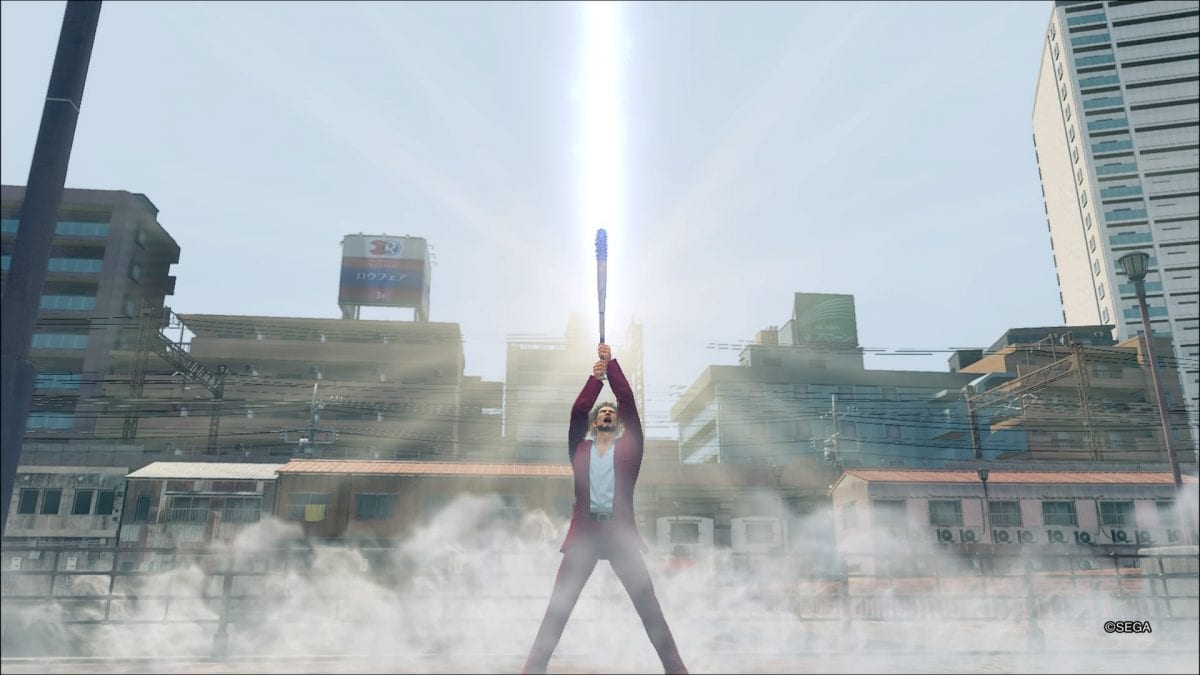
What makes Like a Dragon so great is that it doesn’t really try to be like the previous Yakuza games. Rather, it forges a new path, one of comedy, compassion, and crazy. While it still is very much a mafia-type game, with plenty of dramatic moments, it also very much captures the essence of the game it’s truly inspired by, Dragon Quest.
Throughout the game, Kasuga talks about how much of an impact Dragon Quest had on his life. You see this as the case in literally every part of the game. For instance, just Kasuga’s demeanor and aspirations throughout the game are one of a man inspired to be a hero and that’s exactly what he becomes through his heart and his actions. He even forms a party of ragtag down-on-their-luck warriors to help bring peace to Yokohama. Plus, because of his active imagination, he views enemies and their world like a real-world Dragon Quest.
What makes it so funny is how outright zany it is to see a real-world version of Dragon Quest. Normal-looking enemies will transform into bonkers versions of themselves. Business men will suddenly transform into lubed-up semi-naked attackers, homeless men will find a trash can lid and a plank of wood like a sword and shield, and it just keeps happening to enemies with every encounter some being crazier than the others. Another aspect of what makes it so funny is that the writing itself is just so hilarious and out of nowhere. It had me cracking up.
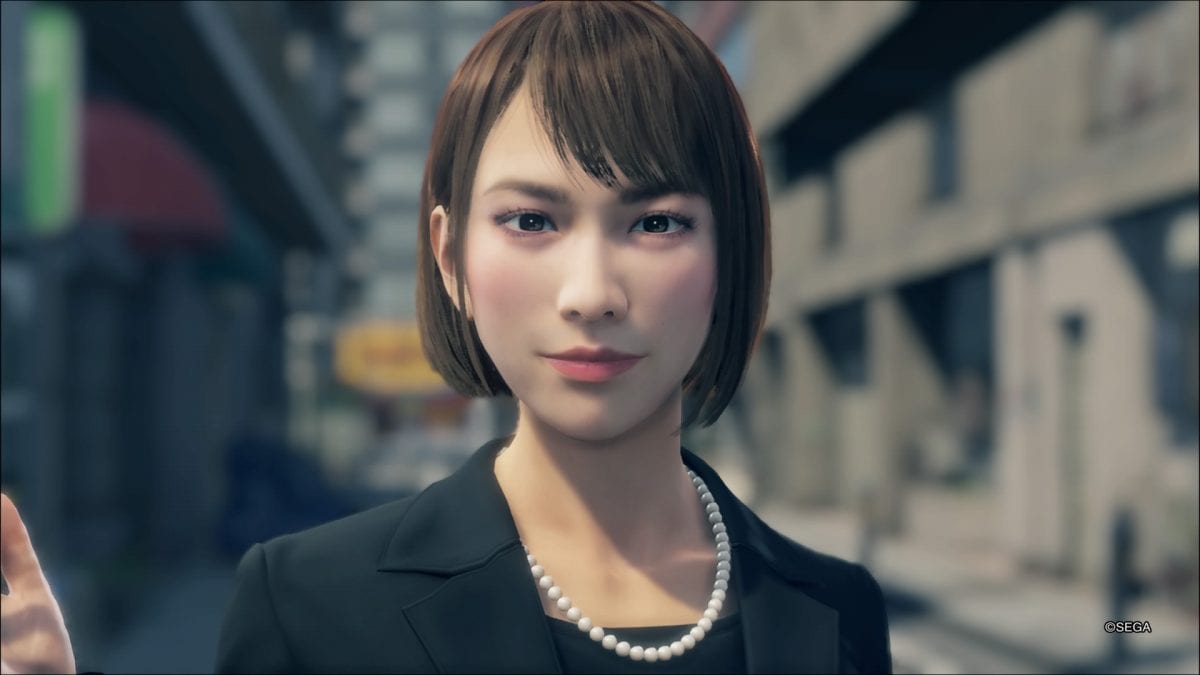
Yakuza: Like a Dragon also features the delicate balance of breaking up the humor with incredible amounts of heart. Due to what we witness throughout the events of the game, it’s really easy to connect with and care for Kasuga. You really root for him to succeed. You really root for the entire party to be successful. The character development for all of these characters is incredible, as they open up throughout the game through bonding moments both in-story and prompted by events.
All that said, through all the heart and hilarity, Yakuza: Like a Dragon still has the brutal moments we’ve come to expect in the Yakuza series. Throughout your time in Yokohama, you take on three different gangs from three different countries, known as the Ijin Three. The Ijin Three are comprised of the Geomijul from Korea, the Liumang from China, and the Seiryu Clan from Japan. Each gang has a tendency to commit brutal acts of violence that we witness as the game goes on.
Through the hilarity, the heart, and the impeccable storytelling, I struggled to put this game down and play anything else. It’s just so good and so easy to become invested in this story and these characters. Yakuza: Like a Dragon is another masterclass in storytelling by Ryu Ga Gotoku Studio. However, while the story is a major part of why we play the game, it’s the drastic changes in combat mechanics that kept me further entertained and eager to play more.
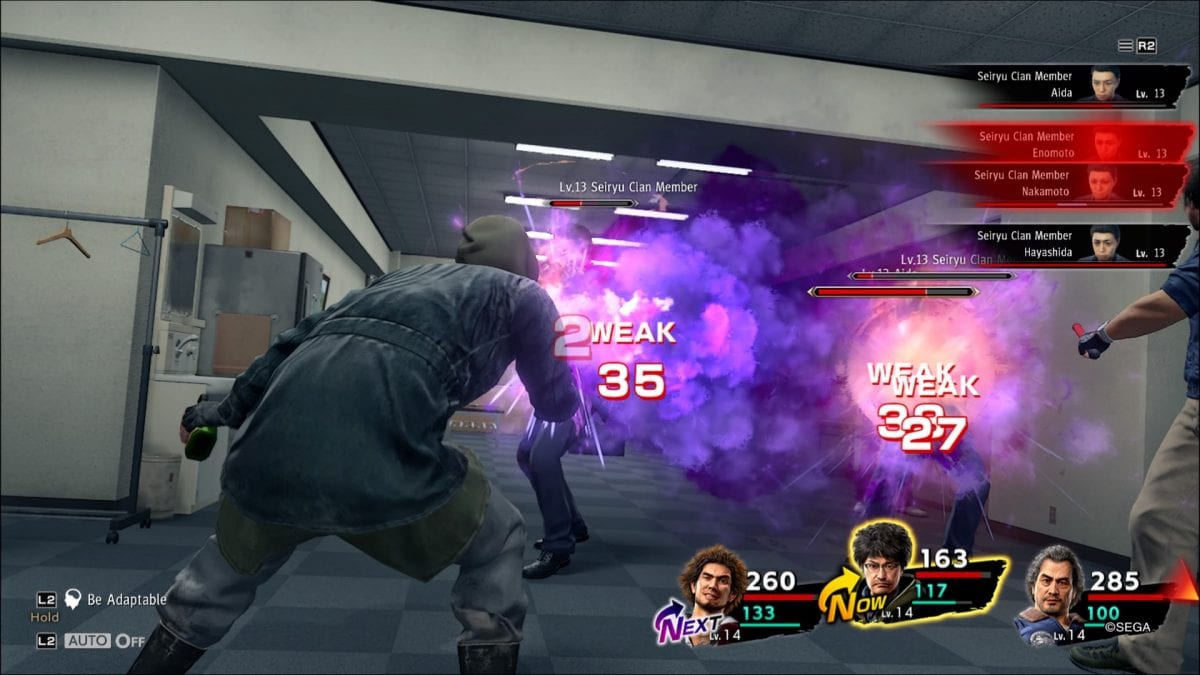
Fantasy Meets Realism in Turn-Based Combat
Like tons of other gamers out there, I grew up with the turn-based combat style of games like Final Fantasy, Chrono Trigger, and yes even Dragon Quest. While I adore so many other games and their combat styles, the turn-based RPG style is my all-time favorite way to play. Yakuza: Like a Dragon adopts this style of combat and it’s just so perfect.
The previous Yakuza games featured more of that free-roaming style of combat that was right for that time, as it resembled a street fight. With Like a Dragon being inspired by Dragon Quest, it couldn’t have had the combat style from the last decade-plus. No, it needed to take a more turn-based RPG approach and it does it beautifully.
Similar to Dragon Quest and turn-based games of old, Like a Dragon has character-specific weapons and job-specific abilities. Characters can gain access to new abilities as they level up and as their job rank increases. Both are crucial parts of the game, as well as purchasing and finding more powerful weapons, armor, and accessories. You know, just like an RPG.
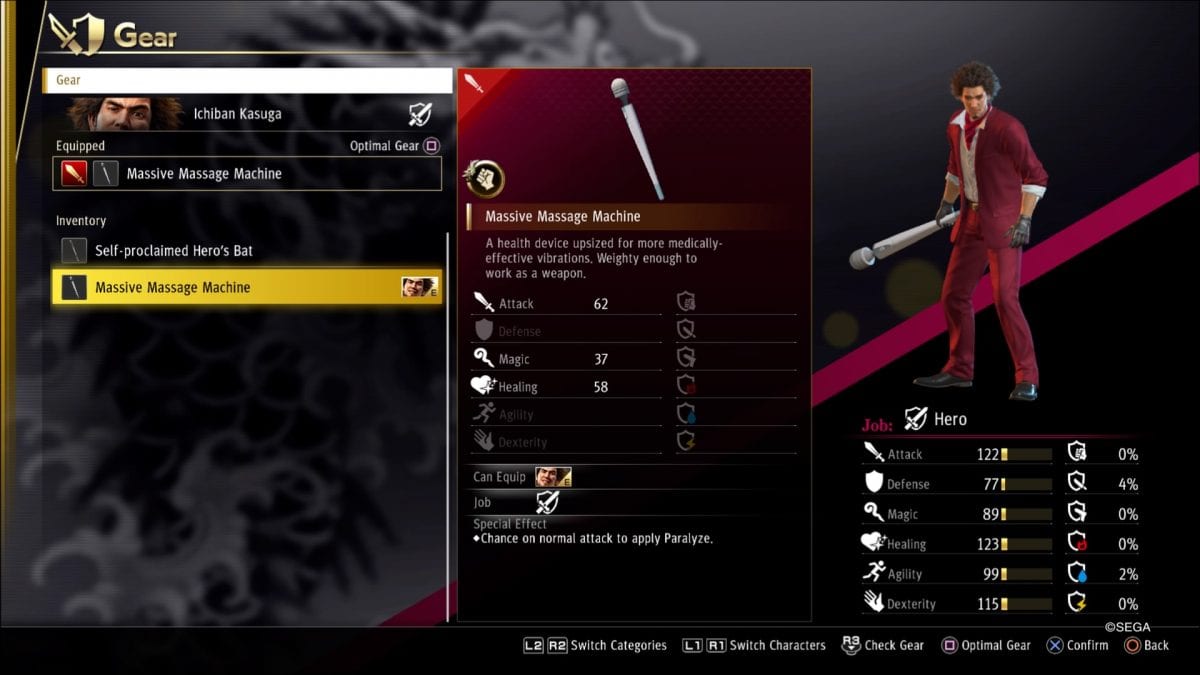
However, what isn’t like those old school RPGs is how abilities and weapons are depicted. These abilities are anything but fantasy. Rather, they take all of the fantasy abilities we’ve seen in RPGs of yesteryear and give them a realistic twist. For instance, fire abilities usually consist of spitting alcohol through a lighter, stat abilities can be anything from breathing your rank breath in someone’s face, enraging someone by flashing them, and so on.
As for weapons, you have your standard blades, baseball bats, guns, rod-type weapons, and so on. However, one character uses a purse, another uses an umbrella, and if you’re feeling really frisky you can go to a sex shop and purchase a massager to hit enemies with. It’s just all so crazy, hilarious, lewd, and fun.
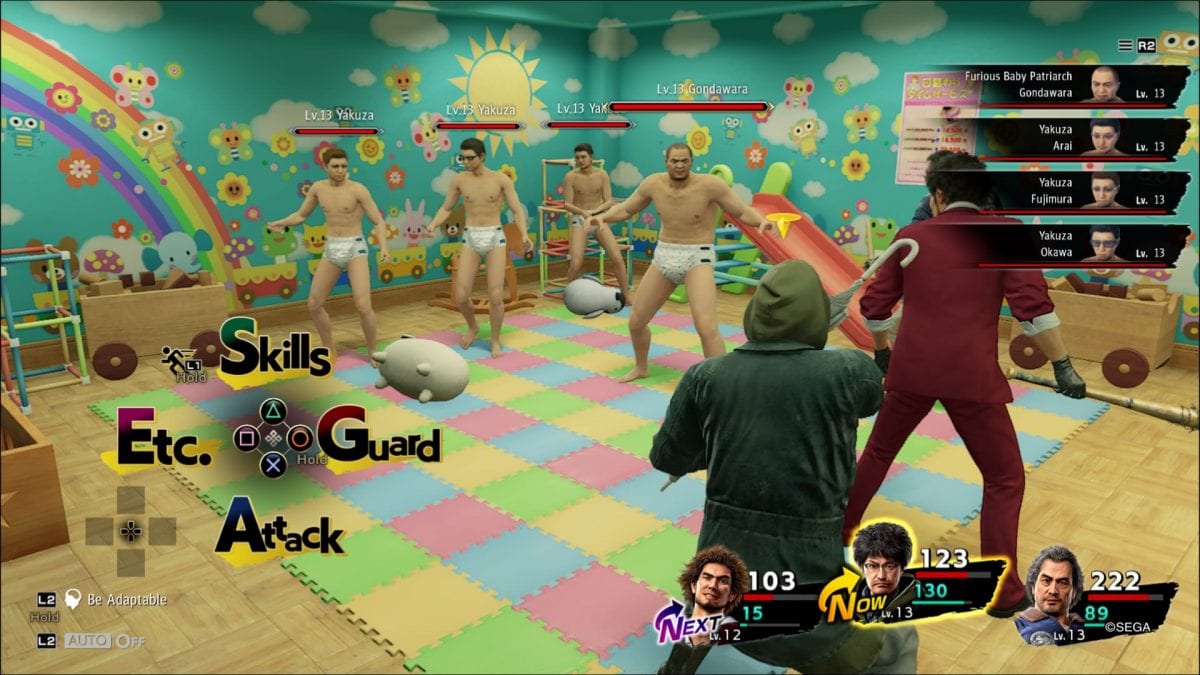
Also, no turn-based RPG would be complete without summons. In Like a Dragon, players can use an app called Poundmates (which is a hilarious misconception when introduced) to summon powerful characters to assist them in battle. Many of them, like the crawfish we saw in the trailers, are recruited. You can also recruit a group of man-babies to fight for you or you can simply use hired guns the app already has. Whatever way you decide to go, each summon is so amazing and well-worth the money needed to summon.
For someone like me who adores the turn-based style from old school RPGs, I absolutely loved Ryu Ga Gotoku Studio’s interpretation. It’s a far more mature version than what most old school gamers are used to but it’s simply sensational.
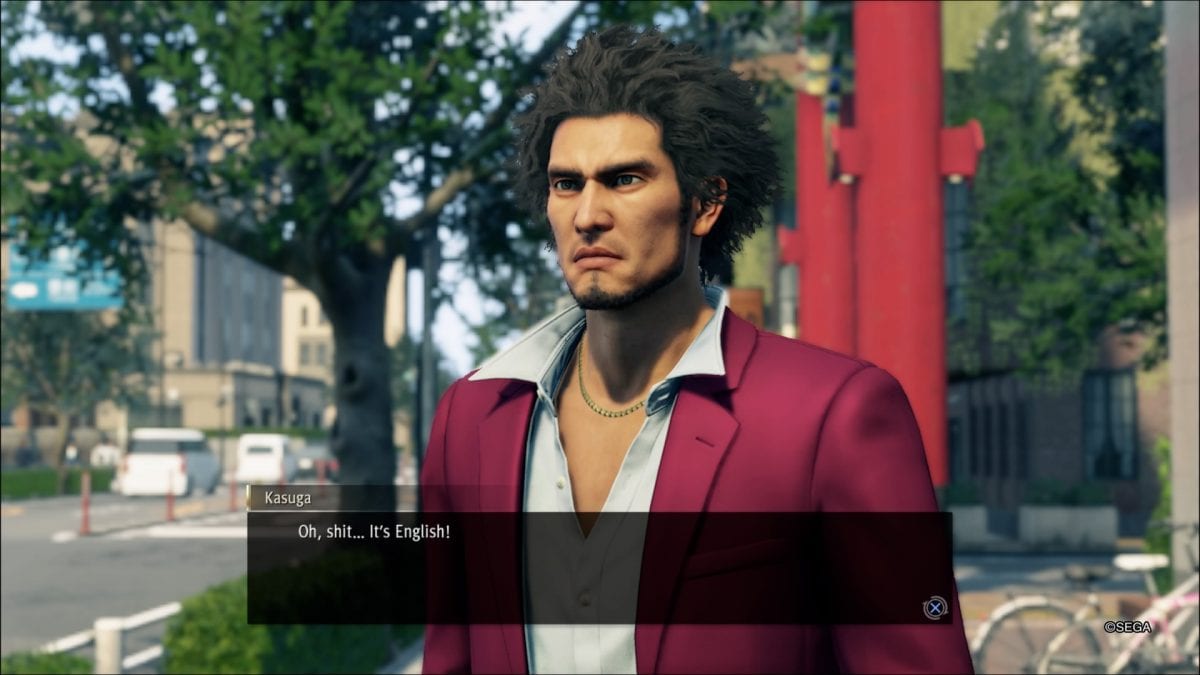
Yakuza Gets Bilingual
Over the course of the Yakuza series, the only dubbing that was included was naturally Japanese. In fact, the first game in the Yakuza franchise to get English dubbing wasn’t even a mainline game. It was the spin-off Judgment. So, that makes Yakuza: Like a Dragon the first main Yakuza game to include English dubs.
To put it plainly, the English cast does an excellent job, but it’s very weird. The dubbing matches the mouth movements, but I’m simply not used to a Yakuza game not being in Japanese. I played primarily with the English version just to see if I ever got used to it and for the most part I did, but it still didn’t feel as right as it did when I played with the Japanese dubs. That’s purely a preference and not in any way a critique on the game.
That said, one issue I did have with the English dubbing is when the game got confused as to which language it was speaking. For instance, there was a scene where a foreigner goes to Kasuga and speaks English very loud and slowly. Kasuga isn’t sure what he’s saying, but then realizes it is English and responds in kind. The problem here is that I was playing on English dub, so I’m hearing and reading English but Kasuga doesn’t understand English. It was a bit discombobulating.
Again, it’s a very minor issue, but one that seems like it could’ve been partially avoidable even if they just changed one line here or there for the English version. Overall, though, both casts did a fantastic job in their voice work of Like a Dragon.
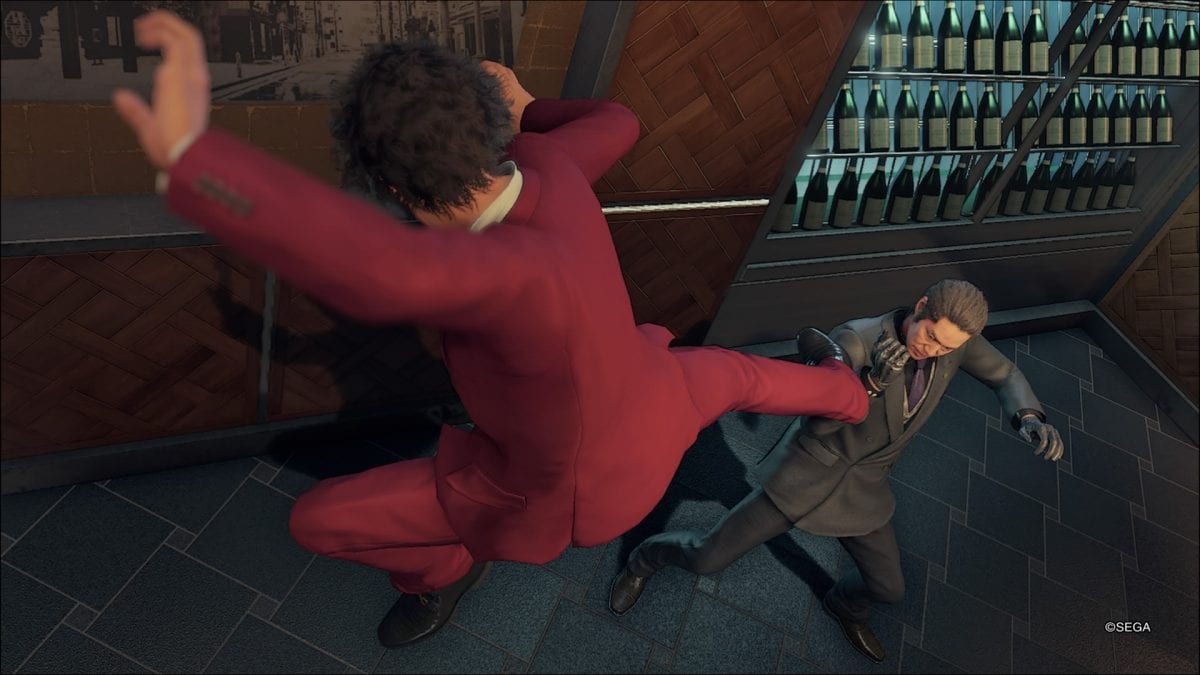
The Most Beautiful Yakuza Yet With Phenomenal Attention to Detail
There are a lot of games that you could consider to be groundbreakers in terms of graphics and pushing the boundaries of realism in games. Final Fantasy is the first game that comes to mind in considering games of this caliber. Until now, Yakuza wasn’t quite considered to be among those games, but that all changes with Like a Dragon.
From the moment you begin playing the game, you can just tell the graphics and the realism is at a whole other level. The textures, colors, and movement are just so stunning. Just for comparison, I played my copy on a Day 1 PlayStation 4 and for those graphics to be as jaw-dropping as they are, it must be absolutely mind-blowing on Xbox Series X.
A lot of what makes this game so visually stunning is the attention to detail. Ryu Ga Gotoku Studio appears to have spared no expense into making every bit of Like a Dragon a visual and thematic masterpiece. In cinematics, movements are crisp and facial expressions are incredibly well-designed and expressed.
Outside of cinematics, the gameplay remains texturally and visually beautiful, though a bit downgraded. That said, the attention to detail isn’t. In certain fight scenes you’ll see characters that were part of the original scene watching in the background, whereas other games may delete them from the scene entirely. However, my favorite bit of attention to detail is how the load screens will show who is in your party using little 16-bit characters. It’s a small detail but it’s the little things that really make a game for me.
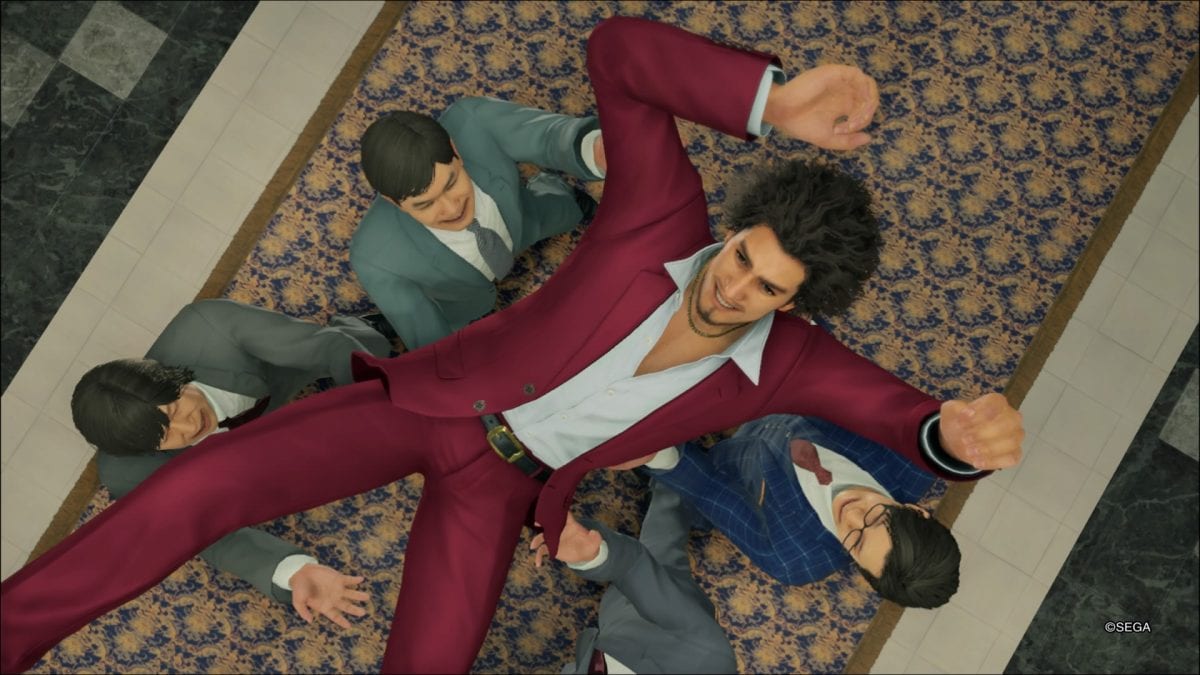
Should You Play It?
If you’ve never played a Yakuza game, you may think you might be out of loop with Yakuza: Like a Dragon. However, that couldn’t be farther from the truth. While yes, veteran players will have a better contextual knowledge of the Tojo Clan and their various enemies and characters from previous games, but Like a Dragon does a good job of moving on without rehashing the past series. Instead, they focus on the new characters to let the player enjoy the new story, without needing to have played the previous games. Therefore, you should never feel out of the loop with Yakuza: Like a Dragon.
If turn-based style RPGs are your thing, Yakuza: Like a Dragon is 100% a must-play game. Even if they aren’t and you just want to experience a sensational story or even just laugh and have a good time, this is absolutely the game for you.
I can’t gush about this game enough. Yakuza: Like a Dragon is everything I wanted the new generation of the series to be. It’s funny, heartfelt, brutal, badass, and wonderfully entertaining. Yakuza: Like a Dragon stands shoulder to shoulder with the best games that have been released this year.

